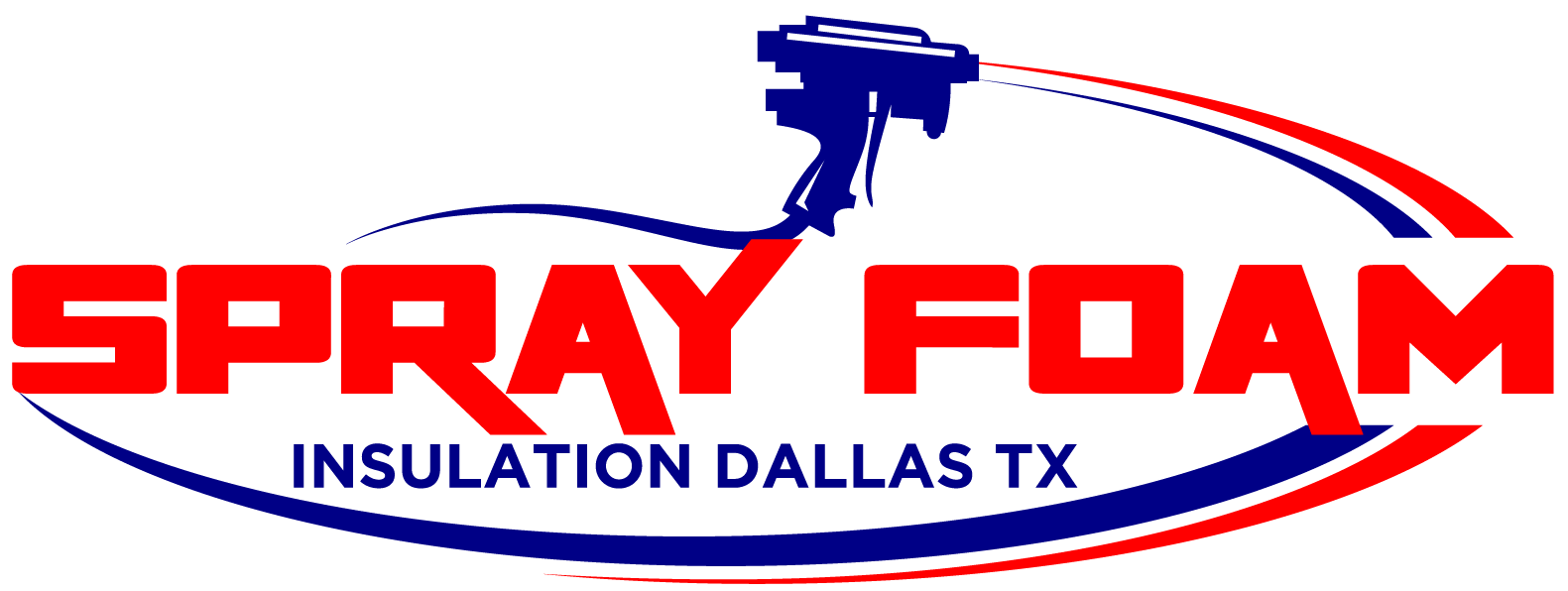What is Spray Foam Insulation?
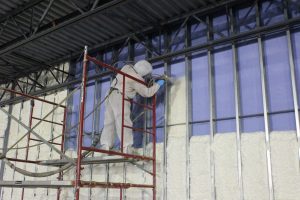
Spray foam is a chemical product created by two materials, isocyanate and polyol resin, which react when mixed with each other and expand up to 30-60 times its liquid volume after it is sprayed in place. This expansion makes it useful as a specialty packing material which forms to the news shape of the product being packaged and produces a high thermal insulating value with virtually no air infiltration…read more
How Does Spray Foam Insulation Work?
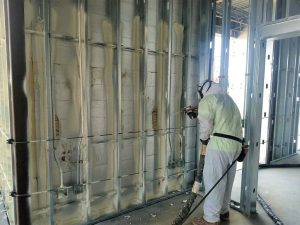
Air leakage is a problem for many homes and this contributes to the home’s energy loss as well as the discomforts of drafts, cold floors, and ice dams. Some open cell spray foam insulation expands up to 100 times its original size to fill every nook and cranny in the cavity avoiding any air leakage. With traditional insulation – fiberglass and cellulose – spaces and gaps that aren’t filled can leak air. Using spray foam can lead to a draft-free and energy-efficient home…read more
Why Choose Spray Foam Insulation?
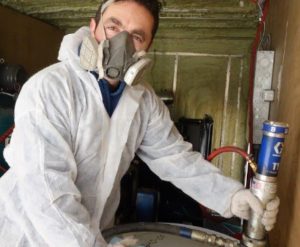
Should you be experiencing high energy bills year-round because your home can’t maintain a constant temperature, then the air seal created by spray foam can help. This seals the building envelope when used throughout the home, so air can’t leak into your home and it also can’t leak out. Air sealing your home stops the air leaks, which means your furnace and air conditioner won’t be running constantly…read more
Where Can You Install Spray Foam?
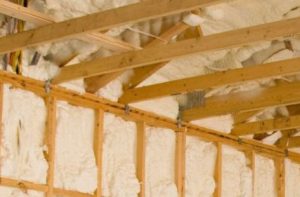
The kind of preparation all depends on where the foam is being applied. If the basement rim joist is being sprayed and there are items down there, then the crew would make sure that if those pieces weren’t moved beforehand that they are moved to the center of the room. Those items would also be covered with plastic as another precaution. Once all of the prep work is done, the crew will run a hose to the area to be insulated – the attic, crawl space, rim joist in an existing home. Uncovered walls in new construction and pole barns can also be sprayed with foam insulation, as well as concrete block walls…read more
When Is the Best Time To Install Spray Foam?
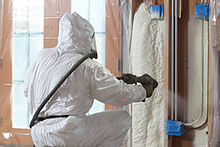
It is best to get spray foam insulation installed in an attic, walls, windows and any other areas where air can leak in and out at a time before the extremes of the hot or cold season. For this reason, many opt to have spray foam installed in the spring or fall when temperatures are mild and optimal for an effective and durable installation…read more
Who Can Install Spray Foam?
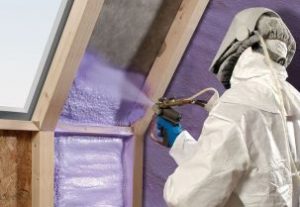
If you’re thinking about buying a do-it-yourself spray foam insulation kits for your home, fire officials and those in the industry recommend you think again because of safety and fire issues. Spray foam acts as a great insulator and vapor barrier, but it’s made up of chemicals and needs to be handled with care. While kits are available at hardware and big box stores that allow homeowners to install it themselves, experts recommend people hire professionals to do the work..read more
Spray Foam Applications
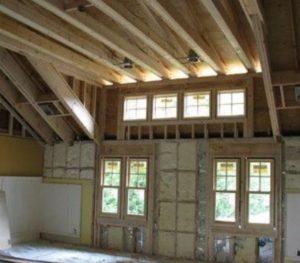
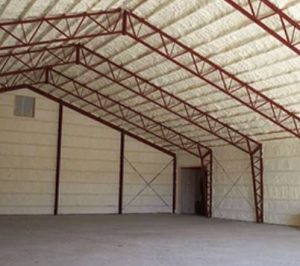
Types of Spray Foam
Closed Cell Insulation
Closed-cell spray foam insulation has it’s very own unique properties and particular applications. This type of spray foam has the highest thermal conductivity, meaning that heat will travel slowing through this type of spray foam. Not only is it one of the best insulators available , but due to its closed-cell structure it sets solid and firm, this adds another facet, the ability to add structural integrity to the area applied to be that a roof or wall.
The closed-cell spray foam’s structure also allows it to be a complete water barrier being able to deflect large amounts of water and can even help with a leaky roof. In addition to this, it can create a complete air seal making it the perfect choice if you wish to seal the envelope of your property.
Open Cell Insulation
The open-cell spray foam is a soft, breathable foam with its cell structure being 90% open. This is the spray foam type with the highest amount of expansion being able to expand from 1mm of liquid form to 100mm of foam insulation. This massive amount of expansion is what allows this type of foam to be applied in any shape; it will completely fill the space to create an airtight seal. This airtight seal is what separates spray foam other types of insulation.
Open-cell spray foam insulation is the type that we recommend installing in residential locations, only in certain circumstances such as if you want to add structural integrity to a roof would we recommend closed-cell. Open-cell is particularly useful in some spaces because of its breathable nature. This means that it will not suffocate your joists and rafters, but it will work with them accounting for seasonal shifting and allowing them to breathe all year round.
The other time we recommend open-cell insulation is when you would like not only to insulate but reduce noise because it is a soft spongy foam it has the highest acoustic values. It is particularly good at lowering sounds like the radio or TV.
Spray Foam Benefits
SAVE MONEY & ENERGY
Once spray foam is installed, you can expect to save up to 50% on your current energy costs. Later if you decide to sell your property, your potential buyers will be willing to pay a higher price for a better energy efficiency rating.
PROTECT YOUR PROPERTY
Spray foam insulation is particularly good at stopping unwanted moisture from entering your home or building. 99% of the moisture that enters your property does so in the air. Spray foam will prevent this and thus prevent the damage caused by undesirable humidity such as mold.
AIR QUALITY
With the air seal achieved when spray foaming, you will block most pollutants in the air entering your home or building. Many of our clients have reported a drastic decrease in dust and dirt particles in the air. This is particularly important for individuals with ailments like asthma which can be agitated by particles in the air.
ADD STRUCTURAL INTEGRITY
Close-cell spray foam can be used to add structural integrity and extend the lifespan of any wall, floor or roof that it is applied.
PEST DEFENSE
Unlike other traditional insulation methods, spray foam acts as a physical barrier to entry. Also, many pests use different insulation types for nesting materials, or as a food source, spray foam is not suitable for either of these uses, and so pests will not be attracted to your home.
Service Area
We cover the entire Dallas/Fort Worth metro region including:
